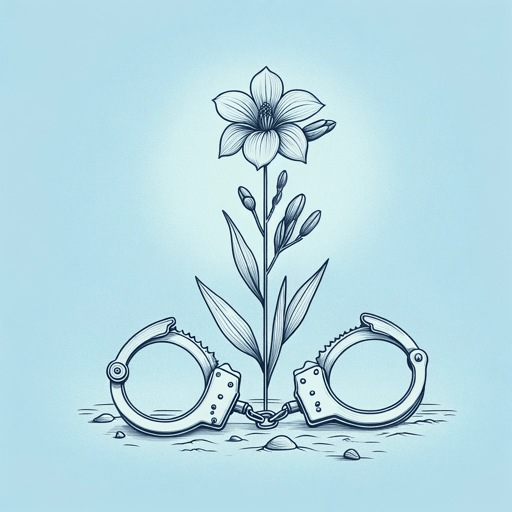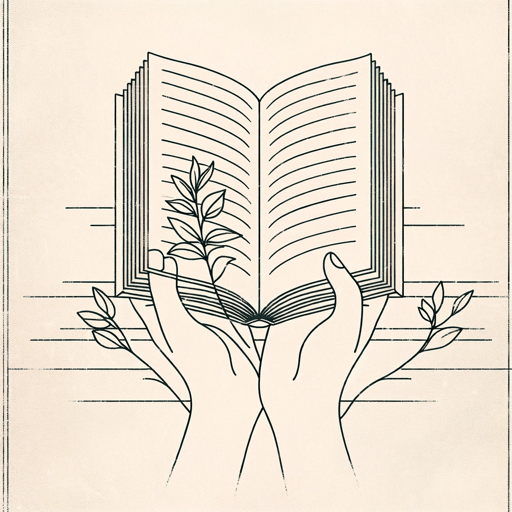17 pages • 34 minutes read
Pat MoraLa Migra
Fiction | Poem | Adult | Published in 1995A modern alternative to SparkNotes and CliffsNotes, SuperSummary offers high-quality Study Guides with detailed chapter summaries and analysis of major themes, characters, and more.
Summary and Study Guide
Overview
“La Migra” is a 1993 poem by the Chicana poet Pat Mora, whose work often explores experiences of Mexicans and Chicanos/Chicanas (Americans of Mexican descent) living near the border between the United States and Mexico. In this poem, Mora dramatizes the conflict between the United States Border Patrol and Mexicans who cross the border without proper documents. The first part of the poem gives voice to the Border Patrol, expressing their arrogant belief that they can catch undocumented migrants easily and may treat them with little sympathy or courtesy. In the second part, however, a female speaker who represents all Mexican border crossers offers her response. She explains that border crossers have the advantage of knowing the terrain and being nimbler than the Border Control. In the face of the Border Patrol’s threats, the migrant woman exhibits courage and determination. She is ready for the challenge. The poem vividly conveys the battle of wills between the two sides in this border conflict. It does not explore the reasons behind undocumented migration, focusing instead on the contrasting attitudes and values of border crossers and Border Patrol agents.
Poet Biography
Mora was born in 1942 in El Paso, Texas, where her grandparents had moved from Northern Mexico. She grew up in a bilingual family, so she was equally immersed in English and Spanish from an early age. Her literary work reflects her comfort in and love for both languages. Mora has worked as a teacher, college administrator, and museum director. She is also a popular speaker, promoting literacy, reading, creativity, and inclusivity. In 1996, she founded Children’s Day, Book Day (El día de los niños, El día de los libros), a yearlong initiative to bring the joy of reading into the lives of all children, which culminates in a nationwide yearly celebration on April 30. Mora is a recipient of numerous awards, two honorary doctorates, and a poetry fellowship from the National Endowment for the Arts. She is also an honorary member of the American Library Association.
Mora has published dozens of books, including poetry, nonfiction, and books for children. Her early collections of poems—Chants (1984) and Borders (1986)—focus on the experiences of Americans of Mexican descent (Chicanos and Chicanas). She broadened her scope in later work, but the value of Mexican heritage and peculiarities of bicultural existence remain her central themes, which she explores in Agua Santa/Holy Water (1997), Adobe Odes (2006), Encantado: Desert Monologues (2018), and other books of poetry. In 1997, she published House of Houses, an exploration of her family history and a celebration of Chicana historical experience and aesthetic sensibility. Her other popular works of nonfiction include Nepantla: Essays from the Land of the Middle (1993) and Zing! Seven Creativity Practices for Educators and Students (2010). Mora has also written over thirty children’s books, many of them bilingual. One of the most recent is Bookjoy, Wordjoy (2018), which reflects her lifelong passion for advocating literacy and joy of reading. She believes that motivating children and their families to be readers is essential for American democracy.
Poem Text
Pat Mora. “La Migra.” 1993. HappyDagger.
Summary
“La Migra” is essentially a dialogue between two personae: a US Border Patrol agent and a Mexican woman who either intends to cross the border or has already done so. The poem consists of two parts of equal length, each representing a different point of view. In the first part, “the Border Patrol” (Line 2) invites “the Mexican maid” (Line 3) to “play La Migra” (Line 1). The Spanish phrase is slang for immigration. The Border Patrol emphasizes its authority and power, telling the other side that they “can’t get away” (Line 6) and that Border Patrol agents can “take you wherever” (Line 8) and “touch you wherever” (Line 12). The Border Patrol threatens the migrant woman with a “kick” (Line 15), “handcuffs” (Line 16), and “a gun” (Line 17). They tell her to get ready for the chase.
In the second part of the poem, the Mexican woman responds. She believes that the Border Patrol will encounter difficulties while chasing migrants across the desert. The agents will have to cope with the heat, their equipment “heavy” (Line 25) and their knowledge of “this desert” (Line 27) inferior to that of the migrants, who know where to find “rest” (Line 28) and “drink” (Line 29). The migrants help each other, “singing” (Line 31) and “laughing” (Line 32) together and speaking Spanish, which the Border Patrol agents “do not understand” (Line 36). Undaunted, she turns the tables on the Border Patrol and dares them to start the chase.
Related Titles
By Pat Mora





